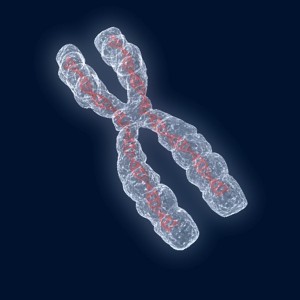Down syndrome causes are genetic in nature, and an abnormal number of chromosomes are the primary cause behind this condition. It is the most common numerical chromosomal anomaly associated with mental retardation, and occurs in 1 in every 600 live births.
Down syndrome has been named after Dr. John L. Down, a British doctor who described the condition for the first time in the year 1887. However, only in the year 1959 was the cause for Down syndrome found to be an extra chromosome. Children with this condition have been found to have developmental delays, both physically as well as mentally.
Down Syndrome Causes – The Genetics Involved
During conception, the genetic information is usually inherited from the parents through 46 chromosomes. The father contributes 23 chromosomes, whereas the mother contributes 23 chromosomes, adding up to 46 chromosomes in the child.
If the normal process of cell division during the formation of the egg or the sperm is disrupted either by genetic or environmental factors, numerical or structural changes in the chromosomes occur. Similarly, in case of a child with Down syndrome, there is an extra chromosome 21 which amounts to a total of 47 chromosomes instead of 46.

Down syndrome causes involve mainly three kinds of chromosomal abnormalities revolving around chromosome 21. These are:
Down Syndrome Causes #1: Trisomy 21
Trisomy 21 accounts for close to 90% of all Down syndrome causes. Normally there are 2 copies of chromosome 21 in bodily cells, but under this abnormality, there are 3 copies of chromosome 21 in all the cells of the body. This happens when the normal process of cell division is disrupted during the formation of reproductive cells – sperm and egg cells.
Down Syndrome Causes #2: Mosaic Down Syndrome
This is a rare kind of Down syndrome where the body has both normal cells (with 2 copies of chromosome 21) and abnormal cells (with 3 copies of chromosome 21). This abnormality is usually caused after fertilization by an error during cell division.
Down Syndrome Causes #3: Translocation Down Syndrome
Again, this is a rare form of Down syndrome where a part of chromosome 21 breaks and attaches itself onto another chromosome. This usually happens before or at the time of conception. In such conditions, there are cells with 2 copies of chromosome 21 along with an extra material of chromosome 21.
Is Maternal Age One Of The Down Syndrome Causes?
There is enough evidence to support the fact that a higher maternal age is a risk factor for Down syndrome.
Among women who are 35 years of age or older, only about 9% of the pregnancies are successful, out of which 25% of the children are born with Down syndrome. A woman is normally born with all the eggs that she would ovulate during her lifetime.
For this reason, if a woman who is 35 years old conceives, then the egg is also likely to be 35 years old. It is believed that as the age of the egg advances, the probability of facing chromosomal abnormalities like Trisomy, Mosaic Trisomy, and Translocations is also high.
Advanced maternal age is identified as a risk factor across populations, however, its molecular association has not been established till now. Screening for Down syndrome is a common practice during the prenatal stage. Although Down syndrome has been identified and described half a century ago, the cause is still not clearly understood.
Further studies which mainly focus on the risk factors are required in order to completely understand Down syndrome causes and the actual condition.